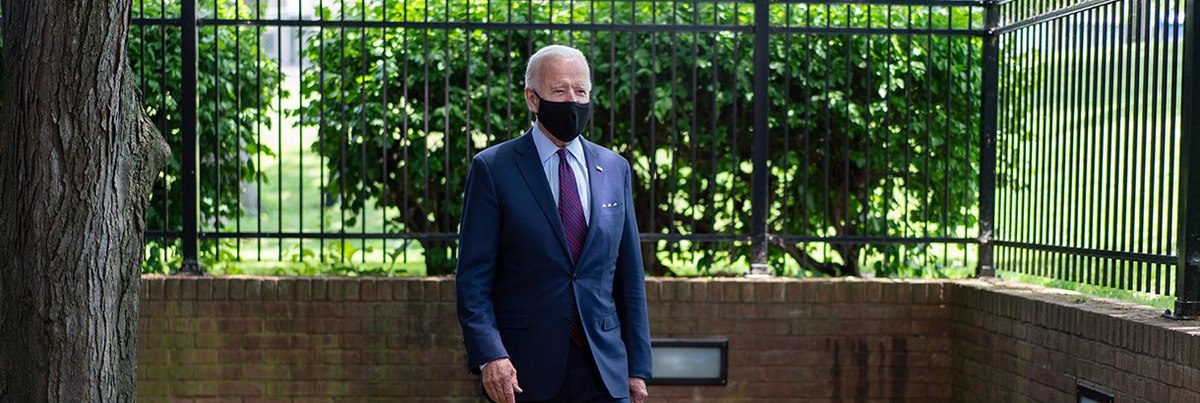As speculation grows about whom Joe Biden will select as his running mate, Biden’s supporters are more uncertain than ever about which woman he should choose for vice president.
Biden, a former vice president himself, pledged back in March to choose a woman for the spot. Since then, the two best known potential selections – Senators Kamala Harris and Elizabeth Warren – have consistently gotten roughly equal support from Biden supporters in Economist/YouGov polling. Their advantage owes mostly to higher name recognition resulting from their own 2020 presidential bids. Meanwhile, awareness and popularity are on the rise for the other women Biden is considering.
When we ask Biden supporters whom they think he should select as the Democratic nominee for vice president, the gap between Harris and Warren and the other choices has narrowed since late June. Harris is down 6 points to 19 percent and Warren is down 4 points to 19 percent, while others have gained, especially former UN ambassador Susan Rice (11%; 5-point increase) and Senator Tammy Duckworth, a Democrat from Illinois (8%; 3-point increase).
As YouGov’s analysis of the June data showed, the gap in choices correlates strongly to familiarity with the candidates. Among those currently supporting Biden over Trump, the favorable ratings of Warren (76%) and Harris (70%) are higher than those of lesser known potential running mates Stacey Abrams, a former gubernatorial candidate in Georgia (59%), Duckworth (58%) and Rice (50%).
Perhaps more indicative of recent news, however, the favorable ratings of most of the lesser known potential running-mates have increased slightly over the past month, with the biggest gains for Duckworth (+16 percentage points), Atlanta Mayor Keisha Lance Bottoms (+8), Val Demmings, a Democratic congresswoman from Florida’s 10th district (+7) and Karen Bass, a Democratic congresswoman from California’s 37th district (+5). Still, all but the best known names on this list remain unknown to half or more of Biden’s supporters.
The continuing lack of familiarity with and uncertainty about the potential vice presidential nominees is also evident when we ask Biden supporters whether each would “help or hurt” Biden’s chances of winning in November. While roughly half see Harris (51%) or Warren (50%) as a help to Biden, better than a third are unsure. Duckworth (41%), Abrams (39%) and Rice (37%) form a second tier, but more than half of Biden supporters are unsure if these women would help or hurt. For the rest of the names on the list, two-thirds or more are unsure.
Finally, the surveys show considerable uncertainty even on more general questions about what kind of running mate he should choose. Biden supporters with an opinion are overwhelmingly in favor of his choosing a Black American as the vice presidential nominee (52% yes, 6% no), but 42 percent are unsure.
Support is stronger for Biden selecting a woman as VP nominee, but likely also influenced by Biden’s already announced decision to choose a female running mate.
A few themes emerge from these results: While rank-and-file Biden supporters do not have a consensus favorite, they are generally positive about the potential running-mates they know. Nonetheless, many are unsure about which of the choices may help or hurt Biden, especially those they do not know.
Or put another way, some Biden supporters have taken note of the candidates he is reportedly vetting and are reacting positively, but many are unsure of who he should pick. Since the choice is effectively up to Biden alone, the current popularity and name recognition may play only a minor role in his eventual decision.
Methodology: The Economist surveys were conducted by YouGov using nationally representative samples of US adult residents interviewed online between June 21-23 (n=1,500; MOE ±3.4%), June 28-30 (n=1,500; MOE ±3.3%) and July 19-21, 2020 (n=1,500; MOE ±3.2%) . These samples were weighted according to gender, age, race, and education based on the American Community Survey, conducted by the US Bureau of the Census, as well as 2016 Presidential vote, registration status, and news interest. Respondents were selected from YouGov’s opt-in panel to be representative of all US residents.
Image: Getty
















